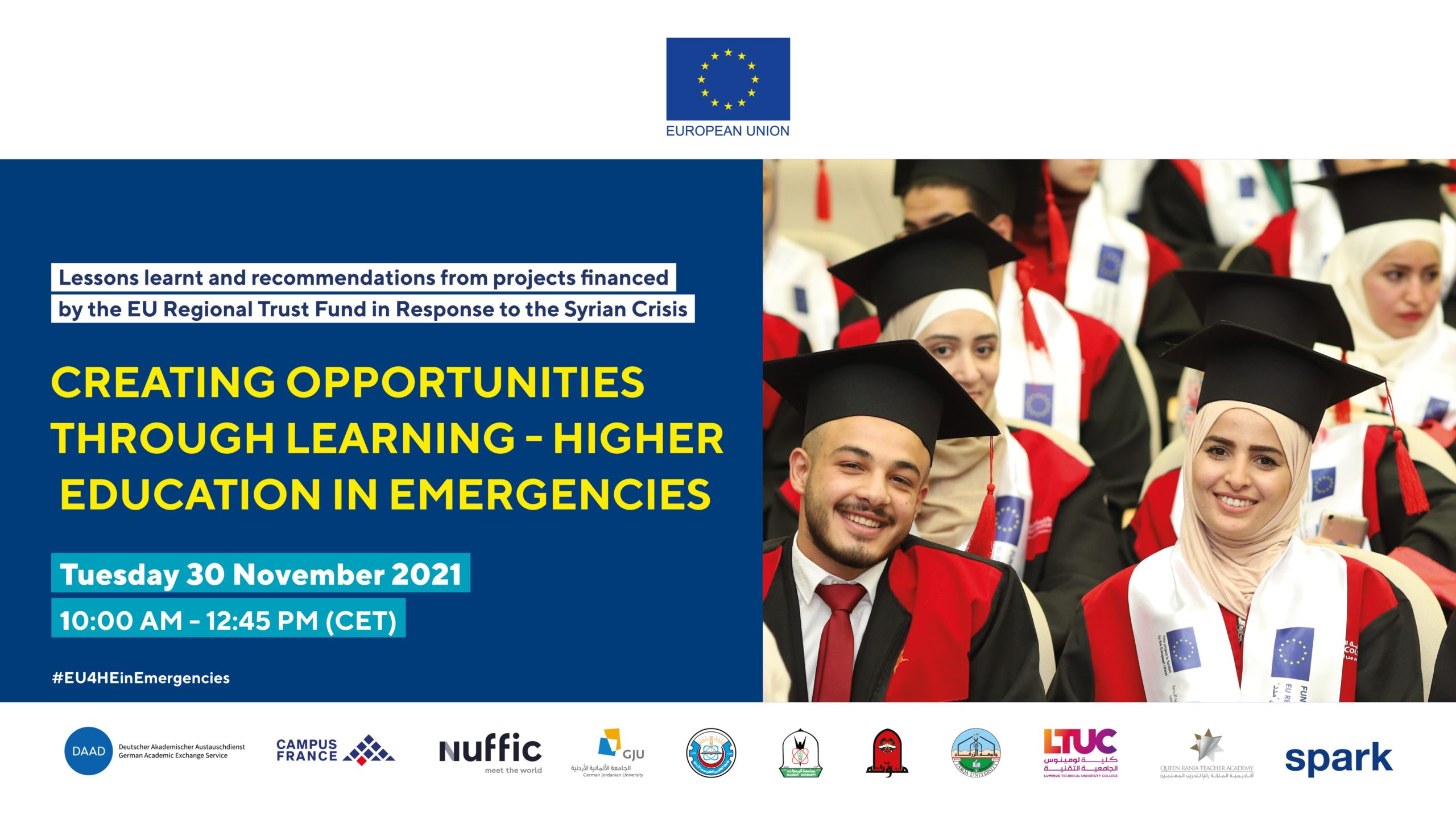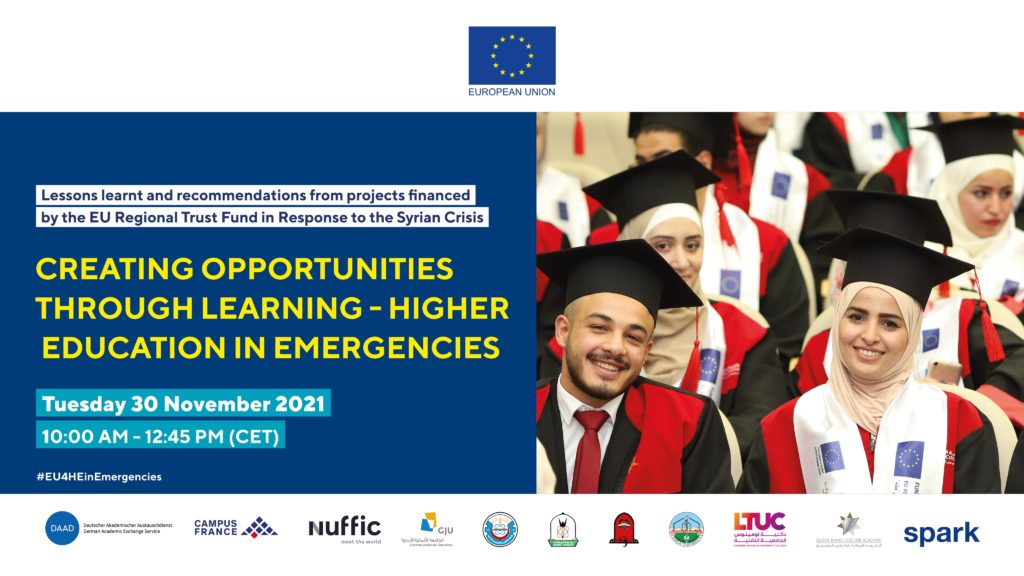
The EU-funded higher education projects organize a joint online event
On Tuesday 30 November 2021, the European HOPES-LEB consortium currently formed by the DAAD, Campus France and Nuffic, the German Jordanian University and its partner institutions, and the Dutch INGO SPARK organised an online joint event entitled ‘Creating opportunities through learning – Higher Education in emergencies’.
With the mandate of the EU Regional Trust Fund in Response to the Syrian Crisis ending in December 2021, representatives of the European Union, ministries, embassies, higher education institutions, students and key institutional stakeholders involved in tertiary education in the context of the Syria Crisis gathered to reflect on lessons learnt throughout the past years from projects financed by the Trust Fund in Egypt, Iraq, Jordan, Lebanon and Turkey and identify recommendations for upcoming interventions.
Following welcome notes by Ms. Angela Atzori, deputy Trust Fund manager of the EU Regional Trust Fund in Response to the Syrian Crisis, representatives of the HOPES programme, EDU-SYRIA and SPARK had a close look back of the EU’s higher education programmes funded since 2016 in the region. The discussion highlighted retrospective achievements and innovative educational initiatives and approaches taken and emphasized challenges and lessons learnt from these multifaceted approaches.
Syrian and host communities’ scholarship holders and alumni shared their experience as beneficiaries of these programmes, their concerns and wishes which allowed to deepen the audience’s understanding of the needs and expectations in the context of the prevailing situation in the host countries.
The third panel with key experts from the French Minstry in charge of Higher Education, the United Nations High Commissioner for Refugees (UNHCR), the Center for International Conflict Analysis and Management and the German-Jordanian University reflected on the external action and role of the EU for Higher Education in crisis regions and explored in-depth further priorities and recommendations for future interventions.

———————————————————–
The Syrian crisis, which started in 2011, has been devastating to the Syrian population as well as to neighbouring countries. With millions turned into refugees, access to higher education became limited for young people, who were and partly still are at risk of becoming a lost generation.
The ‘EU Trust Fund in Response to the Syrian Crisis’ was established in 2014 in order to allow for a coordinated response to the Syrian crisis and to provide Syrian refugees and host communities in the countries neighbouring Syria with the needed support. To date, the EU Madad Fund has mobilized 2.3 billion Euro for projects in the spheres of education, livelihood, health, protection and water management out which more than 94 million Euro were provided for higher education.
Since 2016, more than 7,300 young Syrians and disadvantaged youth from the host communities in Iraq, Jordan, Lebanon, Egypt and Turkey, of whom 46 % are women, have been benefiting from opportunities for higher and further education financed by the Madad Fund through the HOPES project, the EDU-SYRIA programme and programmes implemented by SPARK a Dutch International NGO
For more information about the projects:
HOPES-LEB: www.hopes-madad.org
EDU-SYRIA: https://edu-syria.eu
SPARK: https://spark.ngo/programme/higher-education-services-hes/
More Information about the EU Regional Trust Fund in response to the Syrian crisis, the EU Madad Fund:
Find out more: EUTF Syria & Region
